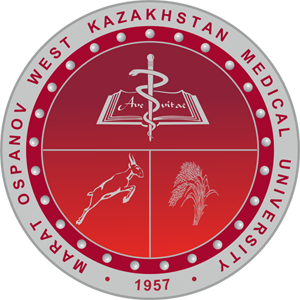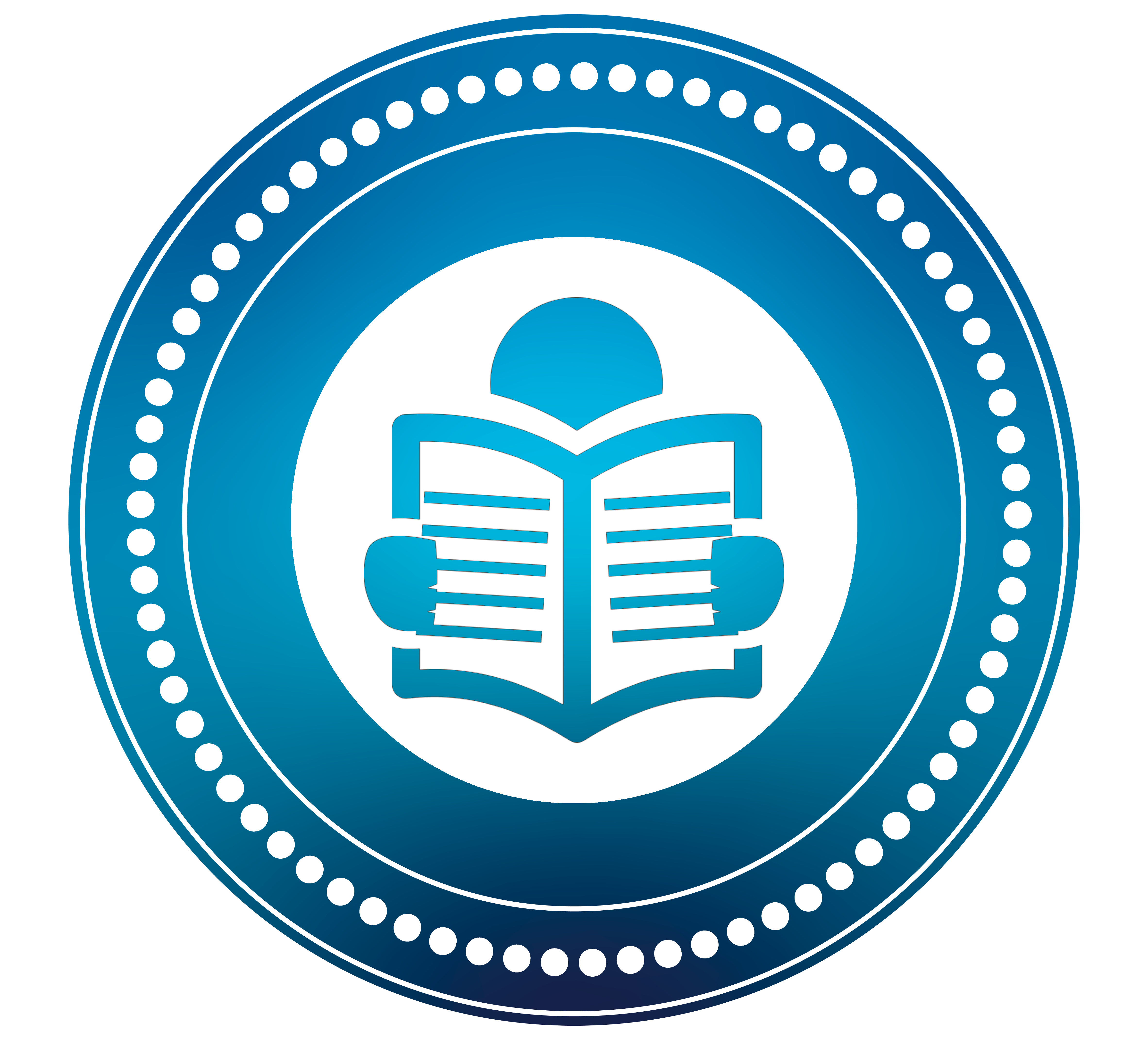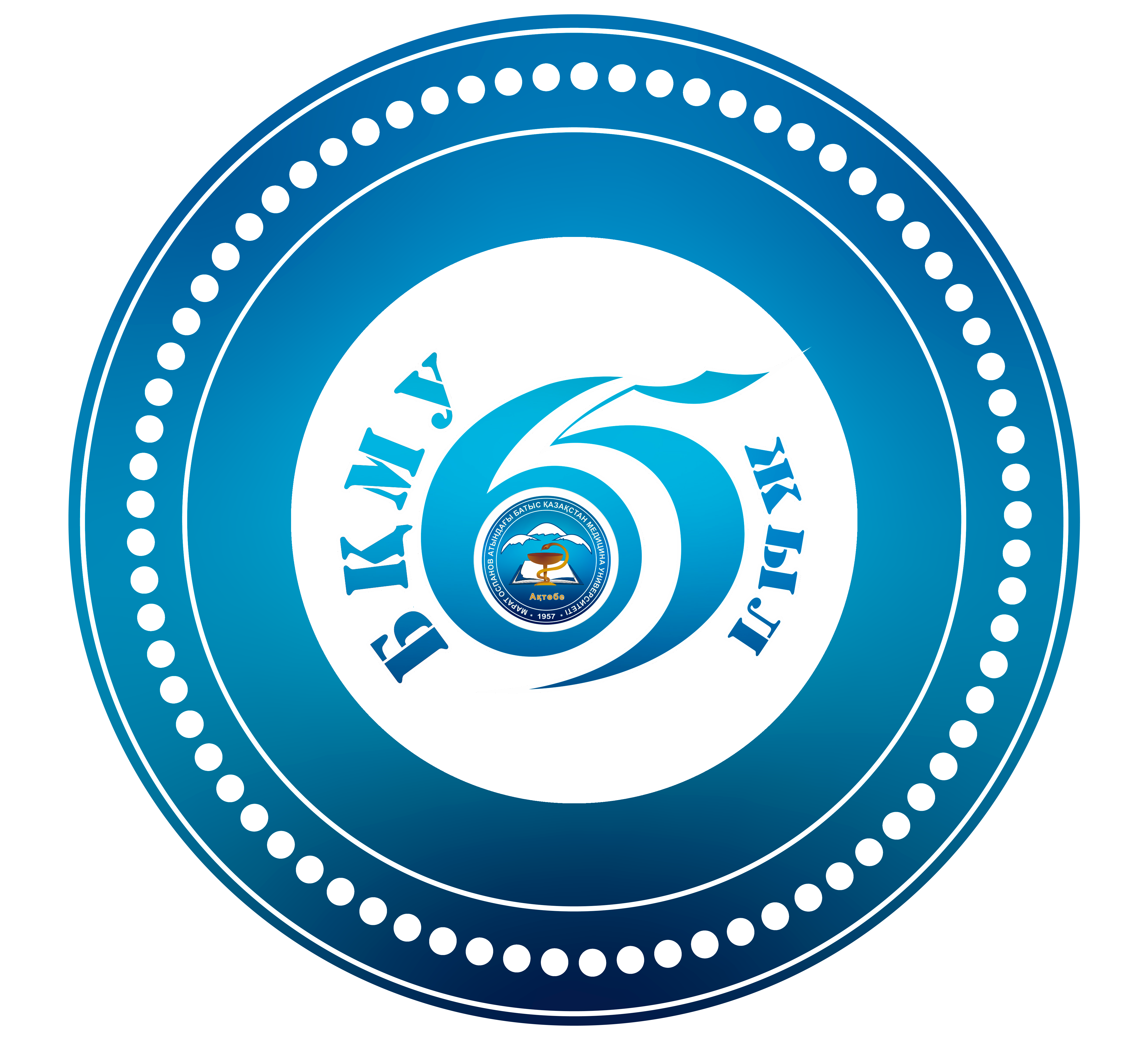Registration number 0121РК00382
RELEVANCE
The strengthening of primary health care (PHC) is a priority area of the WHO strategies, Health 2020. This project complies with the Kazakhstani Development Strategy: development of human resources and medical science, the introduction of IT technologies in healthcare.
Thecurrent educational program (EP) does not meet the WONCA (World Organization of Family Doctors) standards for training general practitioners (GP).Itcovers clinical issues well, but does not take into account the competence-based approach and does not develop mentoring. Now clinical mentors do not have the skills to transfer knowledge.
According to the European Academy of General Practitioners (EURACT), there are core competencies of general practitioners: managing the care process; patient-and community-centered care; solving specific problems, etc.
Achieving these competencies is well implemented with standardized patients(SP). Using SP ensures the patient’s right to receive a safe and high-quality care, however, in the medical universities of Kazakhstan there are no developed SP.
The development of the specialty is also hampered by an insufficient amount of research in the FM. The quality of PHC will only improve through the development of a continuous improvement strategy. Every GP should have a “measure-improve-measure” mindset (B.Bagley, 2005).
A big problem is the lack of readiness of practical healthcare to provide workplaces for family doctors with appropriate equipment. GPs’ offices do not have ophthalmoscopes, otoscopes, etc. Therefore, our doctors cannot practice FM in any way.
Poor IT support does not improve service and satisfaction for both doctors and patients. A modernized family doctor’s office can manage admission requests, referrals and prescriptions, integrate electronic communication with patients, introduce preliminary online diagnostics.
Considering the above, there is an acute issue of developing a modern curriculum for training residents, training clinical mentors, and creating a new model for a teaching and research office of a GP.
THE PURPOSE OF THE STUDY
Promote the development of scientific research in the field of family medicine, development and implementation of new technologies to improve the quality of training of family doctors in accordance with international standards.
RESEARCH OBJECTIVES:
1.Conducting a comparative analysis of educational programs in family medicine for compliance with WONCA standards.
The comparative analysis will be carried out in a qualitative study (interviewing and focus groups with Kazakhstani and international experts in the field of medical education and PHC).
The consensus process will be conducted according to the nominee group methodology based on web/online communication.
The results of the analysis will be documented in the form of a report, which will become the basis for the development of an action plan and a model for training family doctors at the residency level, taking into account international best practices and the specifics of Kazakhstan’s healthcare and education system.
2.Development of an educational residency program in family medicine in accordance with the modern international concept of PHC improvement, piloting and evaluation of its effectiveness.
Based on the results of qualitative research, an educational residency program in the specialty “family medicine” will be created. A pilot implementation of the developed program and an experimental study of its effectiveness will be carried out according to indicators: satisfaction of students, employers, patients, the volume of acquired and used in practical work competencies of a family doctor, hospitalization, referrals to narrow specialists and diagnostic examinations, etc.
According to the results of the pilot, it is planned to apply for accreditation of the educational residency program in family medicine
3.Develop mechanisms for continuous training of family doctors to improve the quality of education and improve medical services.
As part of the implementation of this task, an online course will be developed for clinical mentors (doctors of practical healthcare who will master the necessary pedagogical competencies for training residents in medical organizations). It is planned to train teachers according to EURACT programs, followed by cascade training. As a result, a regional network of mentors will be created who will participate in the training of residents.
4.Creation and piloting of general practitioners’ offices as a new model of educational and research bases implementing the principle of the trinity of science, education and clinic.
Within the framework of the project, offices will be opened equipped with the necessary equipment for a full examination of patients and performing outpatient manipulations, in which residents will be able to put into practice all the acquired skills, unlike conditions unsuitable for family reception in existing polyclinics. In addition, these offices will be equipped with educational equipment, including for modeling situations during training sessions and exams, for telemedicine, if necessary, advisory assistance. Such equipment of offices, the presence of computer programs for creating databases and registers, will allow for research work.
5.Creation and implementation of technologies for research and optimization of medical care to the population.Programs will be created to create patient registers for conducting research in primary care.
Mobile applications for patients with chronic diseases, diagnostic questionnaires, scales in mobile applications for online consultations will be developed and implemented. management and training of patients.
EXPECTED RESULTS
- Accredited family medicine education program for residents. Scope – medical education, target consumers – residents.
- Family doctor’s office established. Scope – PHC, practical health care, target consumers – population, patients, healthcare workers.
- Trained clinical mentors. Applications – medical education, practical healthcare, target consumers – general practitioners / family doctors, residents.
- Research and innovation projects initiated and carried out by residents. Scope – PHC, medical education and science, target consumers – PHC medical workers, patients, population.
- Reducing the pocket expenses of patients and the population for medicines and medical services by 30%, reducing hospitalizations, referrals to narrow specialists by 10%.
Based on the results of the implemented tasks and conducted research, the following will be:
1) 3 articles were published in foreign peer-reviewed scientific journals (European Journal of General Practice, H Index 28, SJR 2019 0.77, https://www.scimagojr.com/journalsearch.php?q=13214&tip=sid; Journal of Interprofessional Education and Practice, H Index 7, SJR 2019 0.32, https://www.scimagojr.com/journalsearch.php?q=21100403171&tip=sid&clean=O; Family Medicine, H Index 63, SJR 2019 0.51, https : //www.scimagojr.com/journalsearch.php? q = 13298 & tip = sid), as well as 5 articles in KKSON journals and other publications.
2) a monograph and a textbook have been published in Kazakhstani publishing houses;
3) 3 scientific and practical conferences were held. Scope – PHC, medical education, target consumers – doctors, teachers.
4) developed and conducted 2 training courses on the organization of patient-family-community-oriented care. Scope – PHC, target consumers – doctors, teachers, population
5) mobile applications for doctors and patients were developed for diagnosis, treatment, prevention, management of chronic patients, education and self-control. Scope – PHC, target consumers – doctors, patients, family members of patients
6) created patient registers for subsequent studies. Applications – science, primary health care, target consumers – researchers, doctors
7) new local clinical protocols (CP), scientifically and economically grounded standards of operating procedures (SOP) have been developed, current protocols, standards, dosage forms in medical organizations have been revised and updated. Scope – PHC, consumers – healthcare workers
Applicability and (or) the possibility of commercializing the obtained scientific results:
– registration of a franchise for a family doctor’s office.
– conducting paid training courses for health workers
– attraction of residents studying on a paid basis
– development of scientifically grounded and economically feasible local protocols, drug formularies, SOPs for PHC organizations
Social, economic, environmental, scientific and technical, multiplicative and (or) other effect of the project results with justification:
– social effect – we expect a decrease in patients’ pocket expenses for drugs and medical services. Evidence-based medicine as the basis of medical practice and patient-centered care allow better and more accurate identification of patients’ problems, reduce the risk of medical errors and overdiagnosis, and reduce unnecessary prescriptions. Our educational program, our patient and family oriented business policy, forms a family doctor who is committed to protecting the interests of the people. Reducing the cost of maintaining health will allow people to direct their resources to proper nutrition, improving living and working conditions. In addition to reducing costs, the expansion of rehabilitation and palliative care, which we plan to develop in the family doctor’s office, which are now almost not provided at primary care, will significantly improve the quality of life of patients, increase the satisfaction of the population, which will relieve social tension.
– economic effect – in the short term, in addition to reducing the pocket costs of patients, the medical department’s expenses for day hospital services, the purchase of unproven medicines, payments for unnecessary services, and a decrease in hospitalizations and ambulance calls will decrease.
ACHIEVED RESULTS
1.A pilot 2-year educational program (EP) of the residency in the specialty “Family Medicine (FM)” has been developed, taking into account the needs of practical healthcare, the real conditions of the clinical bases of the residency (city polyclinics and outpatient clinics), the requirements of existing regulatory legal acts on the organization of the educational process (for example, the duration of training, the ratio of credits, etc.), the incoming level of knowledge, skills and attitudes of internship graduates, but at the same time, focused on international standards of training of family doctors. In particular, the competencies of WONCA family doctors, the international association of Family Doctors, were used to compile a list of the final results of training. Almost completely (by 70%) changed the list of practical skills in the current SES 2019 and TUP (Order of the Ministry of Health of the Republic of Kazakhstan dated July 31, 2015 No. 647 as amended by the Order of the Ministry of Health of the Republic of Kazakhstan dated 02/21/2020), the list of the most common diseases and conditions to be diagnosed and treated, introduced new disciplines, for example, on research in SM, leadership in primary health care (PHC), and others. OP policies are provided, the list of resident assessment tools has been expanded.
2.1 teacher, a member of the temporary scientific team of the NTP, was trained at the EUROACT training “Leadership in family medicine” for teachers of family medicine in Bled (September 9-11, 2021). The certificate is submitted. Leadership as a competence is included in the tasks of the new FP, in the module “PHC Management”. The developer and responsible teacher of this module is L.M. Zhamalieva, who passed this Euroact training. In January 2022, L.M. Zhamalieva conducts a master class for teachers on leadership in family medicine based on the training materials.
3.An online course has been developed for clinical mentors of family medicine residents. The Moodle platform is used. The objectives of the course are to develop the pedagogical competencies of clinical mentors – practitioners, to improve the understanding of the principles of family medicine among clinical mentors, especially from among narrow specialists, under whose guidance residents form their practical skills in neurology, ophthalmology, etc. The main end results of the mentors’ training are the formation of their skills of clinical training of residents, training feedback, commitment to the practice of evidence-based medicine. Taking into account the employment of mentors-practitioners, the developed online course is designed for 6 months: 1 module (2 credits) for 2 months. The course’s online platform will host materials for self-study, video lectures, self-control questions, a forum for discussion and feedback from course teachers, and other learning resources.
4.2 articles have been published: one in the journal from the list of COXON, the second in the journal of the Ministry of Internal Affairs of the Russian Academy
of Sciences. – N.A. Abenova, G.S. Dilmagambetova, L.M.Zhamalieva, A.R. Kashkinbayeva, Yu.A.Zame, G.K. Koshmagambetova. Comparative review of educational programs in family medicine in Kazakhstan and in the world. Science and Healthcare, 2021, No.4 (vol.23), pp. 153-161. ![]()
– Z.Zh. Tanbetova, G.S. Dilmagambetova, M.B. Akhmetzhanova, L.M. Zhamalieva. The attitude of family medicine residents to their profession: the results of a qualitative study. West Kazakhstan Medical Journal, No. 63 (3), 2021, pp. 138-144 ![]()
5.An international scientific conference “Residency in family medicine: achievements, problems and prospects” was held on the problems of residency in the specialty “Family Medicine” on May 19-20, 2021, in the city of Aktobe (Kazakhstan).
Reports:
Abenova N.A. at 12:10 “Comparative review of educational programs on family medicine residency in Kazakhstan and in the world”; ![]()
Kashkinbayeva A.R. at 12:45 “New experience in organizing a training module on pediatric neurology for resident family doctors”; ![]()
Tanbetova Z.Zh. at 13:15 “The attitude of family medicine residents to their profession: the results of a qualitative study”; ![]()
Zame Yu.A. “Communication with elderly patients in the practice of a family doctor” (poster report); ![]()
Resident Tattibaeva A. “Perception of professionalism among students and residents of medical universities (qualitative research)” (II prize-winning place). ![]()
Research Group and project management
- Zhamalieva lazzat Manbetzhanovna candidate of Medical Sciences, Associate Professor-Head of the project, Index Hirsha-1
Scopus Author ID 57204944725
https://www.scopus.com/authid/detail.uri?authorId=57204944725
ORCID ID 0000-0003-3625-3651
- Abenova Nurgul Abdullayevna-candidate of Medical Sciences.
Scopus Author ID 57191709378
https://www.scopus.com/authid/detail.uri?authorId=57191709378
- Dilmagambetova Gaukhar Saruarovna-candidate of Medical Sciences, Index Hirsha-1
- Scopus Author ID 8634838700
https://www.scopus.com/authid/detail.uri?authorId=8634838700
- Koshmaganbetova Gulbakyt Kuanyshkalievna-PhD, Index Hirsha-3
Scopus Author ID 56560058000
https://www.scopus.com/authid/detail.uri?authorId=56560058000
ORCID ID 0000-0001-5895-346X
- Ostretsova Tatyana Petrovna-candidate of Medical Sciences.
- Tanbetova Ziyash Zhakanovna-master of Medical Sciences.
Scopus Author ID 57283771200
https://www.scopus.com/authid/detail.uri?authorId=57283771200
- Akhmetzhanova Moldir Bekmaganbetovna-master of Medical Sciences.
- Tautanova Aidana Kurmanbaykyzy – master of Natural Sciences.
Scopus Author ID 57220175835
https://www.scopus.com/authid/detail.uri?authorId=57220175835
ORCID ID 0000-0001-8971-1455
List of publications within the framework of a scientific and technical project with grant funding for scientific and (or) scientific and technical projects for 2021-2023 on the topic: IRN AP09260428 Building the capacity of technologies for medical education and research in family medicine in Kazakhstan» ![]()
Articles in journals recommended by CCFES:
1. N.A. Abenova, G.S. Dilmagambetova, L.M.Zhamalieva, A.R. Kashkinbayeva, Yu.A.Zam, G.K. Koshmagambetova. Comparative review of educational programs in family medicine in Kazakhstan and in the world. Science and Healthcare, 2021, No. 4 (vol.23), pp. 153-161. ![]()
https://newjournal.ssmu.kz/publication/448/2021-4-23-190-198/?sphrase_id=8312180
Articles in scientific and practical journals:
1. Z.Zh. Tanbetova, G.S. Dilmagambetova, M.B. Akhmetzhanova, L.M. Zhamalieva. The attitude of family medicine residents to their profession: the results of a qualitative study. West Kazakhstan Medical Journal, No. 63 (3), 2021, pp. 138-144



 Marat Ospanov West Kazakhstan Medical University
Marat Ospanov West Kazakhstan Medical University




